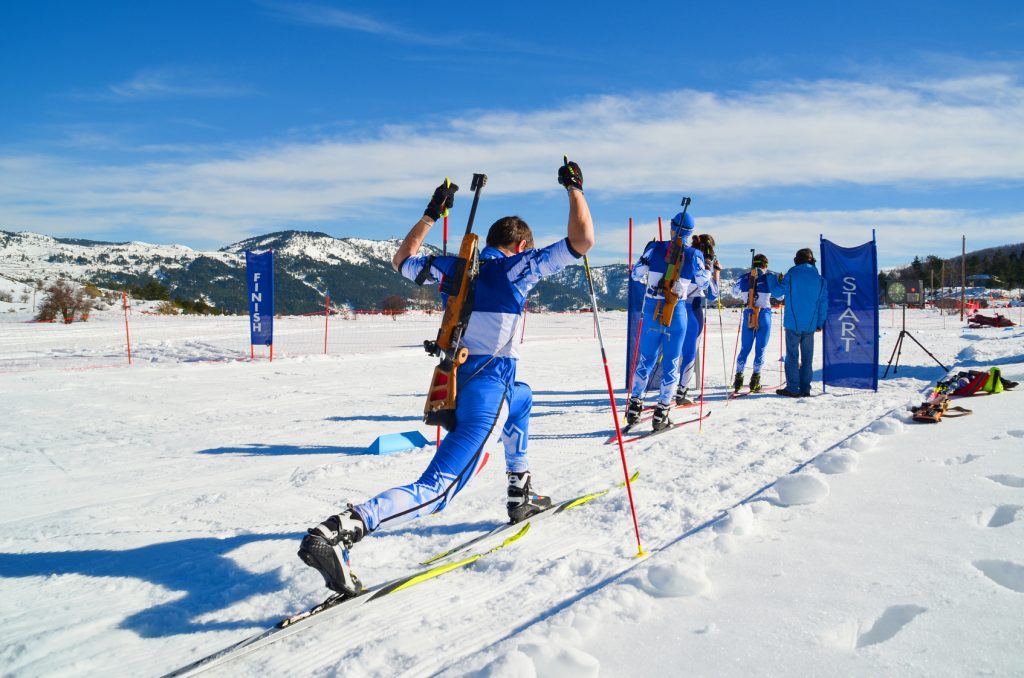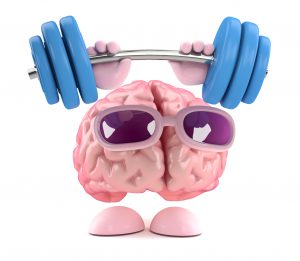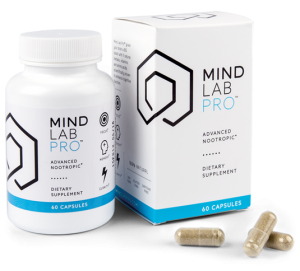
I am going to start this review by asking you one of those “What would you do?” philosophical questions. Here goes:
If you could take a natural, legal performance-enhancer that gave you a competitive edge… Would you do it?
Imagine if your opponent had no idea about this performance enhancer, and you thrashed him or her soundly in tennis, chess, Scrabble, golf, jiu-jitsu, whatever.
Would you feel guilty? Or would you quietly be gloating over your secret advantage for success?
The Geek, for one, feels no guilt over taking every possible competitive edge, as long as they are safe and legal – which is why I use Rhodiola as a nootropic supplement.
TL/DNR: Rhodiola rose is an adaptogen herb associated with Russia that has long been used to strengthen resistance to stress in both mind and body. This key adaptogenic bioactivity translates into stress-free mental clarity, enhanced physical performance, and even a brighter mood – making it one of the best whole-life nootropics you can buy.
Let’s review Rhodiola Rosea in more detail.
Page Contents
How Rhodiola Rosea is Supposed to Work
Rhodiola rosea is the stuff of legend in Russia and other eastern European regions, where its nootropic and adaptogen benefits have been traditionally used by:
- Farmers and Fieldworkers to improve stamina and productivity during long, physically demanding work days in harsh environments
- Olympic athletes as a legal performance-enhancing herb for concentration, mental and physical strength, and calmness during competition
- Cosmonauts to maintain steady nerves and counter fatigue, anxiety, physical and emotional stress during missions in freakin’ SPACE
![Beyond Biathletes, Rhodiola was supposedly used by Soviet-era Olympic weight-lifters, like Viktor Mazin here during the XXII Olympic Games in 1980. RIA Novosti archive, image #103479 / Dmitryi Donskoy / CC-BY-SA 3.0 [CC BY-SA 3.0], via Wikimedia Commons](https://nootropicgeek.com/wp-content/uploads/2016/10/Rhodiola-Olympic-Bodybuilders.jpg)
The first clues of its effectiveness for strength may have been that Rhodiola rosea is found in cold, low oxygen, high altitude environments.
Literally, in notoriously harsh Siberian climes, even in freakin’ arctic climes, this tough-as-nails plant grows and thrives.
![I love this pic: See the tiny yellow flowers? That's Rhodiola Rosea. Growing pretty much IN A ROCK, next to some freakin' freezing water, in the subarctic climate of Newfoundland. Yeah, that is one hardy nootropic herb! By Gérald Tapp (Own work) [CC BY-SA 3.0], via Wikimedia Commons](https://nootropicgeek.com/wp-content/uploads/2016/10/Rhodiola_rosea_nootropic-685x1024.jpg)
Rhodiola rosea is a strong herb that supplies strengthening benefits — in both a physical and mental context.
Rhodiola Rosea root, noted for its bright yellow color, is where you find the good stuff: Rosavins and salidrosides. These are the compounds that modern science has identified as Rhodiola’s most that most active ingredients for performance enhancements in brain and body.
So what do the Golden Root’s strengthening benefits feel like?
I think that the researchers in one study have summed up Rhodiola Rosea’s benefits pretty accurately and concisely:
R. rosea may have beneficial effects on physical performance, mental performance, and certain mental health conditions.”
Let’s look into some of Rhodiola Rosea’s science-backed beneficial bioactivities:
Adaptogen anti-stress effects
![Rhodiola seems to balance HPA axis activity. The axis includes, from top to bottom in this animation, the Hypothalmus, Pituitary Gland, and Adrenal Cortex. By Anatomography (en:Anatomography (setting page of this image)) [CC BY-SA 2.1 jp], via Wikimedia Commons](https://nootropicgeek.com/wp-content/uploads/2016/10/HPA-axis_Rhodiola.gif)
When we get stressed, this same axis unleashes a cascade of reactions that culminate in a flood of hormones and neurotransmitters that put us in a fight-or-flight state.
Rhodiola rosea appears to help regulate the stress response, notably blunting the spike in stress hormones.
Inappropriate stress responses — such as mental fatigue from overwork or anxiety for an upcoming exam – have been linked to cognitive dysfunction. And high levels of stress hormones have been linked with mental fatigue, mood imbalance, and anxiety.
- One study found that Rhodiola rosea supplementation blunted the spike in cortisol that typically occurs upon waking in the morning, which seems to reinforce its role as a stress hormone balancer, and may even suggest some anti anxiety activity.
Brain Chemical Boosts
Rhodiola rosea seems to promote norepinephrine, serotonin, and dopamine. It has been suggested to work by blocking monoamine oxidases, which are the enzymes that destroy these circulating brain chemicals. Rhodiola rosea seems to help sustain neurotransmitters.
- It is interesting to me how Rhodiola rosea complements its own anti-stress adaptogens effects with support for neurotransmitters that also help with stress and mood.
Neuroprotective antioxidant activity
This often overlooked aspect of Rhodiola is a good sign for long-range brain health, too. Rhodiola rosea supplies antioxidant activity, and may also help to fight some of the irregular protein clusters that are associated with brain degeneration, including Alzheimer’s.
Animal Research Suggests “Single-Dose” Benefits
- One interesting animal study used a standardized rhodiola rosea supplement (supplying 1% salidroside and 3% rosavin) on the cognitive status of mice. Researchers found that with only ONE serving, the Rhodiola seemed to boost mood, ease anxiety, and confer a mild stimulating effect on the mice.
- Another animal study found that a liquid extract of rhodiola rosea seemed to increase the learning capacity and memory of rats within 24 hours of taking a single dose. Researchers also noted that the rhodiola appeared to significantly enhance the rats’ memory after ten days of taking the supplement.
Rhodiola Rosea Benefits
Supplement manufacturers make claims of Rhodiola rosea helping with energy, physical strength. They also say that Rhodiola rose as adaptogen activity helps the body to adapt to and conquer all kinds of stress, emotional, physical, and environmental (like cold, or loud noises). In the context of a nootropic, Rhodiola rosea has been promoted to help with mental energy, mood, and overall cognitive performance.
If you ask me, Rhodiola rose a nutritional supplement manufacturers are on point with their claims. It’s that undeniable anti-stress activity. For me, it seems pretty clear that when something is really effective at fighting are stress responses, it can then eliminate all the negative cognitive consequences of stress. Which, for me, manifest as low mental energy, inability to concentrate, foul mood, and a complete lack of motivation.

Let’s see what the researchers say about Rhodiola.
Researchers have suggested that Rhodiola Rosea might:
Help with mental performance by reducing life-stress symptoms
In one study, a trademarked brand of Rhodiola called “WS-1375” was administered at 200 mg dosage to 101 subject, 2X daily, for 4 weeks. Researchers found that the rhodiola extract “improved life-stress symptoms,” including measures of concentration, fatigue, concentration and mood. These effects seemed to start around day 3 of supplementation, and became more pronounced over time.
Fight symptoms of fatigue in military cadets
This study investigated how Rhodiola (as a patented extract called SHR-5) might help military cadets who were under stress and mental fatigue. 161 such cadets received either 370 mg dosage, 555 mg dosage, or placebo as a single serving. They were then tested for their fatigue. While all groups showed improvement, researchers reported that the rhodiola’s anti-fatigue benefits were significantly greater than the placebo group. One interesting side discovery here was that the dosage of Rhodiola did not seem to make a difference; both 370 and 555 mg supplements seemed equally effective.
Improve mental energy and mind-body performance
Student volunteers taking foreign language classes took rhodiola rosea 50 mg dosage (as SHR-5) or placebo for 20 days. The study took place at the end of the semester, leading up to and during exams. Researchers found that rhodiola improved mental energy, with side benefits for physical performance and neuro-motor performance. Researchers noted that the study subjects did not perform any better on tests involving correcting text, but they also admitted the 50 mg dosage they used might have been a little low.
Help with brainpower that is compromised by stress
In this study, 56 doctors who worked night shifts were evaluated for their cognitive performance while taking rhodiola (as SHR-5 supplements). Subjects were tested late at night, during their shifts, for several aspects of cognition including processing, focus, short term memory, concentration, and mathematics. Researchers discovered that rhodiola significantly improved cognitive test performance, and also seemed to fight mental fatigue in the doctors, specifically when they were under stress.
A Note on Types of Rhodiola Rosea
The best studies out there use patented, branded forms of Rhodiola that I have literally never ever seen in a nootropic supplement… EVER!!!
I am not sure what this means, but I think it might be that these branded forms aren’t available in products within my country (USA).
- The easy fix: SHR-5 supplements may not be available where I live, but I know it is standardized to 3% rosavin and 1% salidroside. So what I do is just look for generic standardized Rhodiola rosea, that supplies in the same ballpark of those key active compounds of SHR-5.
If I ever see SHR-5, I am buying that product post-haste… they deserve it for the research they’ve done on Rhodiola, and besides that, in general if given the option, I’m taking the researched-backed nutrient form every day of the week.
My Experience with Rhodiola Rosea
I take Rhodiola rosea root virtually daily in my coffee (with L-theanine, L-tyrosine, and MCT oil). In my experience, it is one of the nootropics you can FEEL working. But what makes Rhodiola a little different is that I can feel it in both my mental AND physical performance.
![Tennis demands focus, strategy, calm & physical strength -- Rhodiola helps with all of the above. Pictured is Tommy Haas. His serve is almost as good as mine. By Diane Krauss (DianeAnna) (Own work) [GFDL, CC-BY-SA-3.0 or CC BY-SA 2.5-2.0-1.0], via Wikimedia Commons](https://nootropicgeek.com/wp-content/uploads/2016/10/Rhodiola-tennis-219x300.jpg)
Those legendary anti-stress benefits? They are harder to describe, but definitely there.
It’s a feeling of mental clarity and calm; a sort of inner strength.
And when I feel that way, it makes me more confident, which in turn helps me think faster and stay more positive. Depression lifts. So I would say there are mood benefits on the side for me as well, but only when I am taking Rhodiola Rosea daily for a couple of weeks.
I have used Rhodiola Rosea root in a work productivity context, as well… much like the Russian farmers used it centuries ago: As a revitalizer to help them get through brutally difficult workdays.
OK, so maybe I’m not toiling in the fields in frigid temperatures like those guys.
But when I am working on a deadline, feeling stressed and frazzled, and trying to think straight while working on zero sleep, I have found Rhodiola seems to confer that same helpful “strengthening” benefit. The mental fatigue dissolves, brain fog lifts, and I feel newly energized: Able to crank on productivity once more.
To be honest, I don’t solely rely on Rhodiola Rosea for these anti-stress, pro-productivity benefits. This is partly because there are other nootropics I favor for work-related stress and productivity enhancement… and if I had to choose, I’d likely choose several of them over Rhodiola. But fortunately I don’t have to choose, so I just take them all!
With that in mind, I will be a user of Rhodiola extract for a looooong time because of its fast-acting brain-booster effects.
RED FLAG: If you see a nootropic supplement using Rhodiola Crenulata, take heed: It is NOT the same as Rhodiola Rosea. Nope, it is a cheaper, cheesier option that is not backed by nearly as much safety and efficacy data as Rhodiola Rosea.
- If you’re gonna buy Rhodiola, buy the Good Stuff: Rhodiola ROSEA
Is Rhodiola Rosea a Good Nootropic?
Uh, that’d be a HELL YEAH. But it’s different. Just keep that in mind. I think of it more as a mental performance enabler. It removes obstacles to clear thinking, such as stress and mental fatigue. Once those blocks are removed, the thoughts start to flow more easily.
But if you’re taking Rhodiola Rosea as a nootropic for sitting around and thinking, well then you, my friend, are doing it wrong.
This herb is best for any kind of cognitive performance that can harmonize with physical performance. Good applications include:
- Physical sports that involve cognitive strategy
- Physical occupations that require endurance and focus
- Brainy occupations with long, stress-filled days that cause mental fatigue
- Working out during training sessions that demand mind-body intensity
Other reviews that I’ve read seem to back up Rhodiola’s unique “mind-body” nootropic angle, making it one of the best supplements out there for brainy athletes who want to WIN. WebMD is a buzzkill ’cause they say there’s just not enough scientific evidence to back Rhodiola… to which I say eat my shorts WebMD, what about the evidence of HUNDREDS OF YEARS of use for mind-body performance?
No matter how you slice it, Rhodiola Rosea root is one of the awesomest herbs on the planet, with a legacy of performance enhancement. This is one you’ll want to buy and have on hand when you need that extra boost in body and mind.
Read my Best Nootropic Supplements to Buy in 2021 list here.
Best Nootropic Supplement with Rhodiola Rosea
A heaping scoop of Rhodiola rosea in your coffee or tea works. Standardized Rhodiola rosea extract supplements work as well. However, if a well-rounded cognition enhancement experience is what you’re after, then you’ll want to stack your Rhodiola (preferably standardized) with other nootropics. And not just any other nootropics but quality, effective nootropics, such as those found here:
Mind Lab Pro
 Supplying the preferred 1%, 3% standardized extract of Rhodiola rosea, Mind Lab Pro achieves the various mental and physical performance benefits associated with Rhodiola — and then some. And what’s super cool about this brain health stack is that Rhodiola rosea isn’t even its most exciting nootropic.
Supplying the preferred 1%, 3% standardized extract of Rhodiola rosea, Mind Lab Pro achieves the various mental and physical performance benefits associated with Rhodiola — and then some. And what’s super cool about this brain health stack is that Rhodiola rosea isn’t even its most exciting nootropic.
In addition to Rhodiola’s anti-stress, anti-fatigue benefits, Mind Lab Pro supplies N-Acetyl L-Tyrosine, a catecholamine precursor compound that also delivers reliable, fast-acting mood and motivation boosts. Taken together, Rhodiola and NALT seem to help reduce stress by replenishing the brain’s feel-good chemicals while ameliorating the body’s cortisol activity, respectively.
And that covers only two of Mind Lab Pro’s 11 ingredients — all of which benefit brain health and cognition in their own unique ways.
Want some? Get the Best Deal on Mind Lab Pro here.
Read my in-depth review on Mind Lab Pro.
Overall Nootropic Power Rating
[yasr_multiset setid=0]
